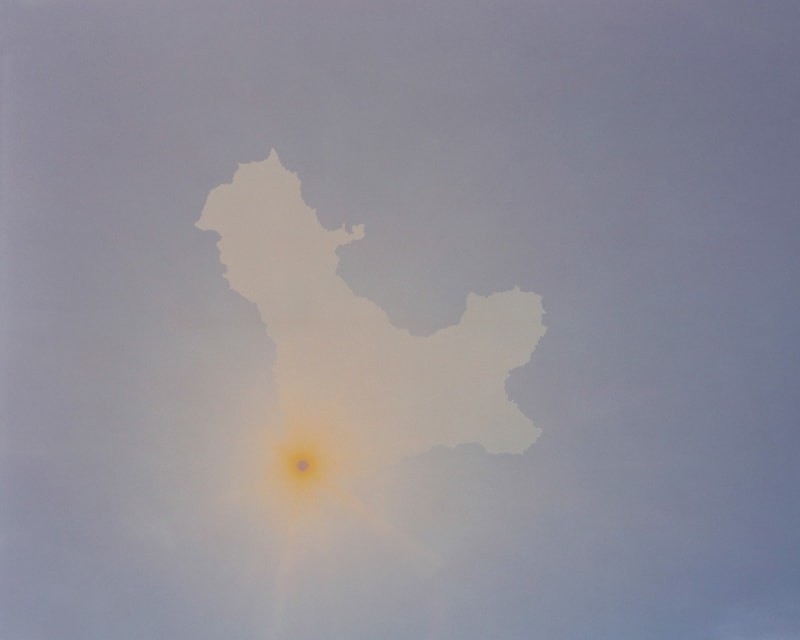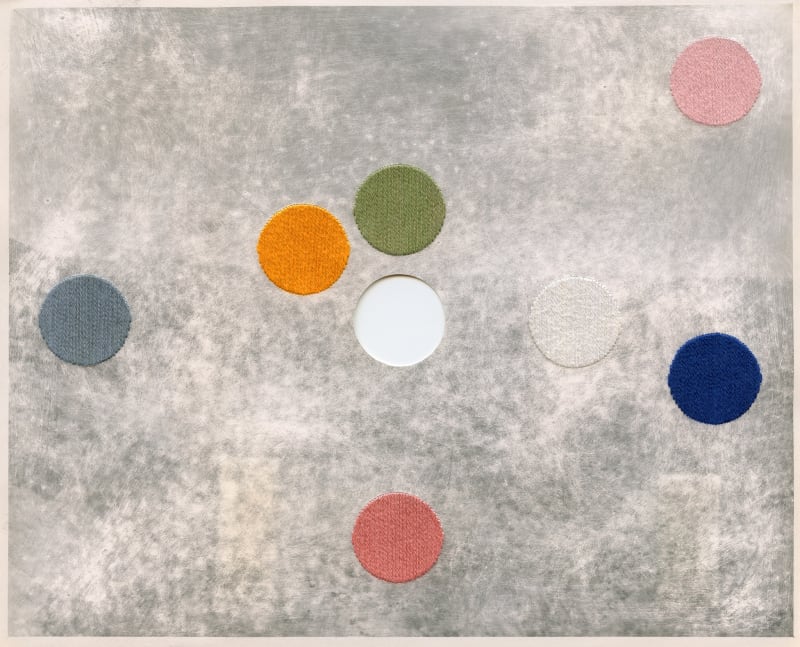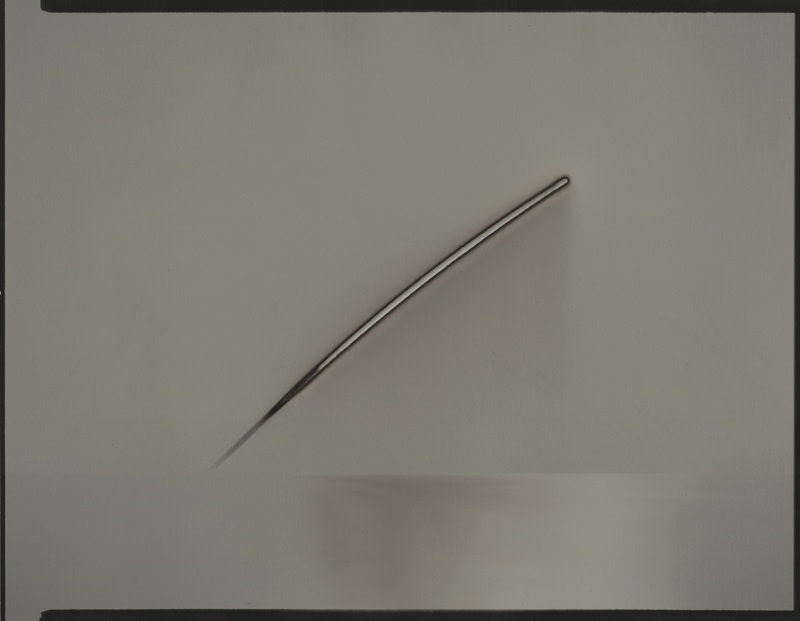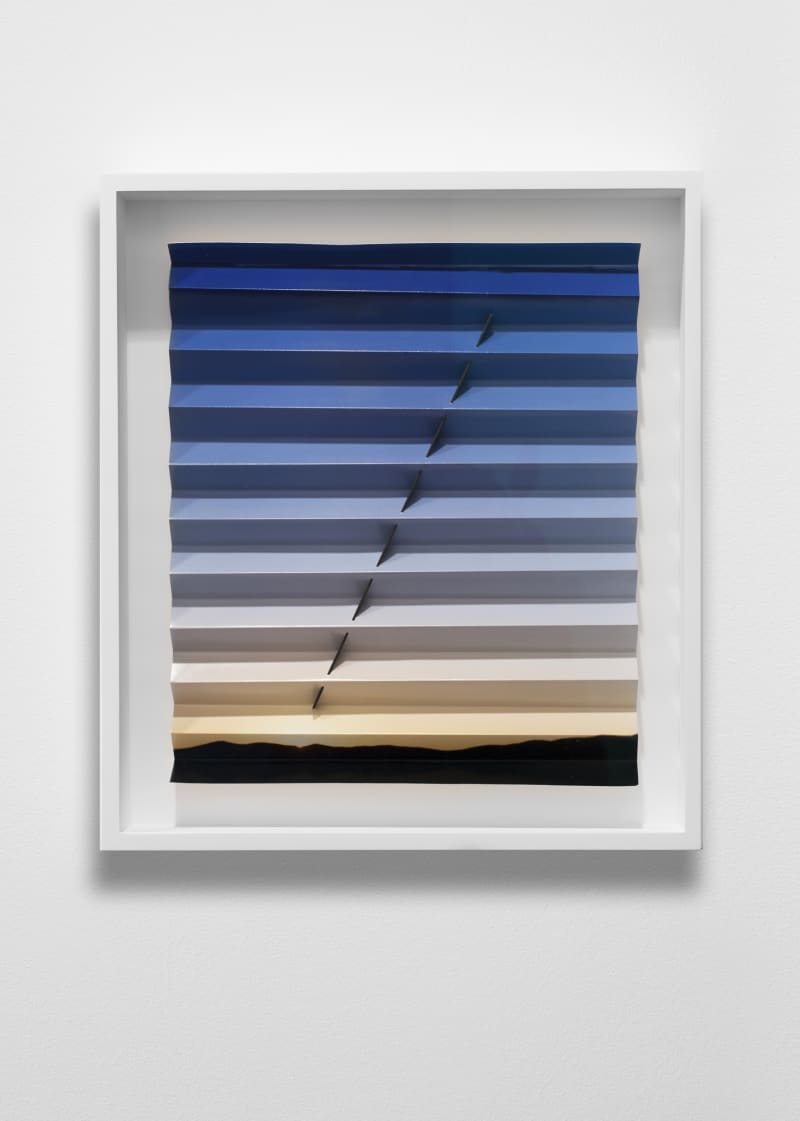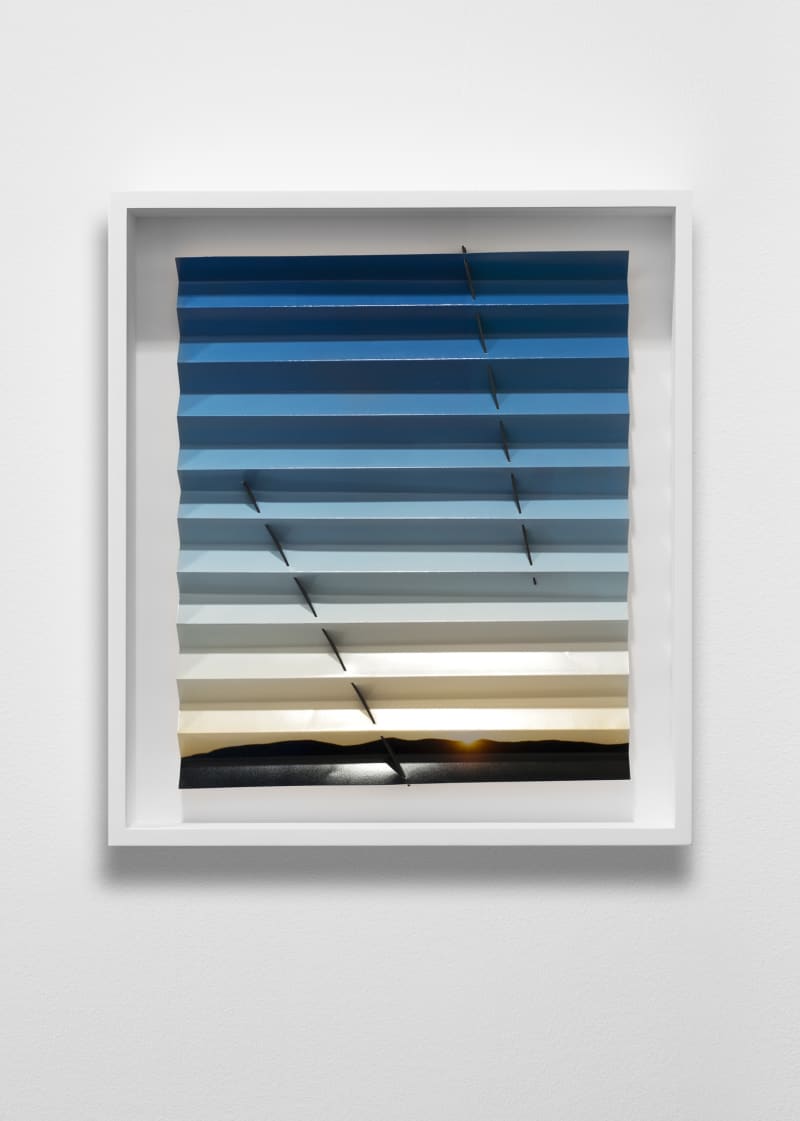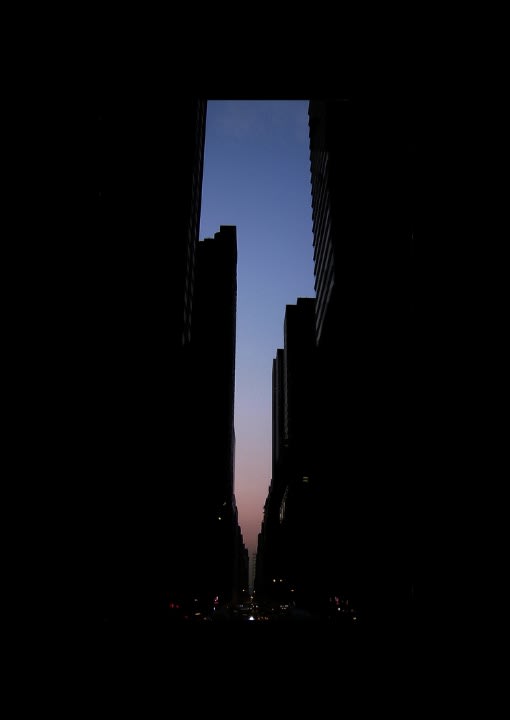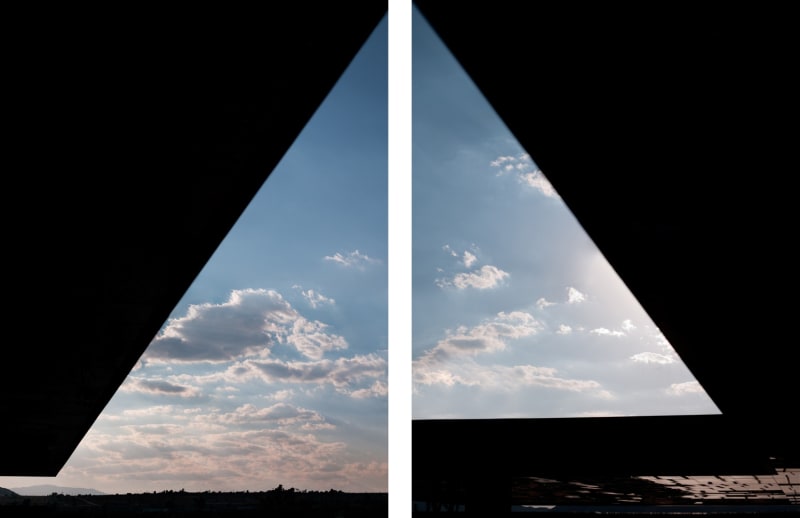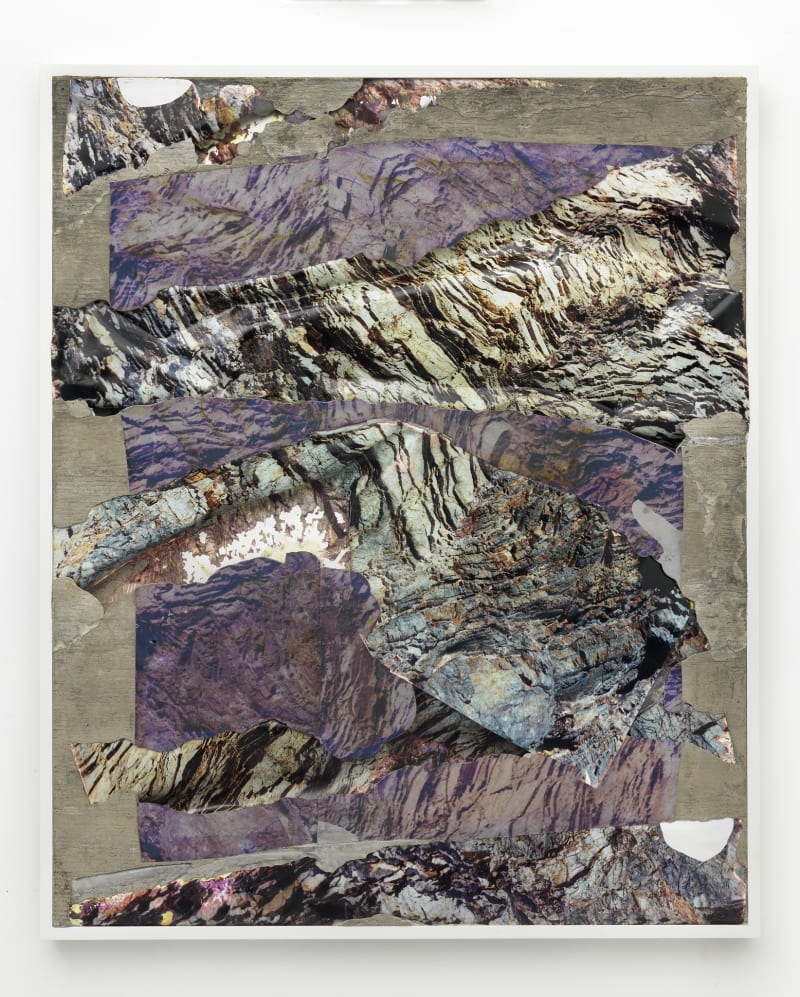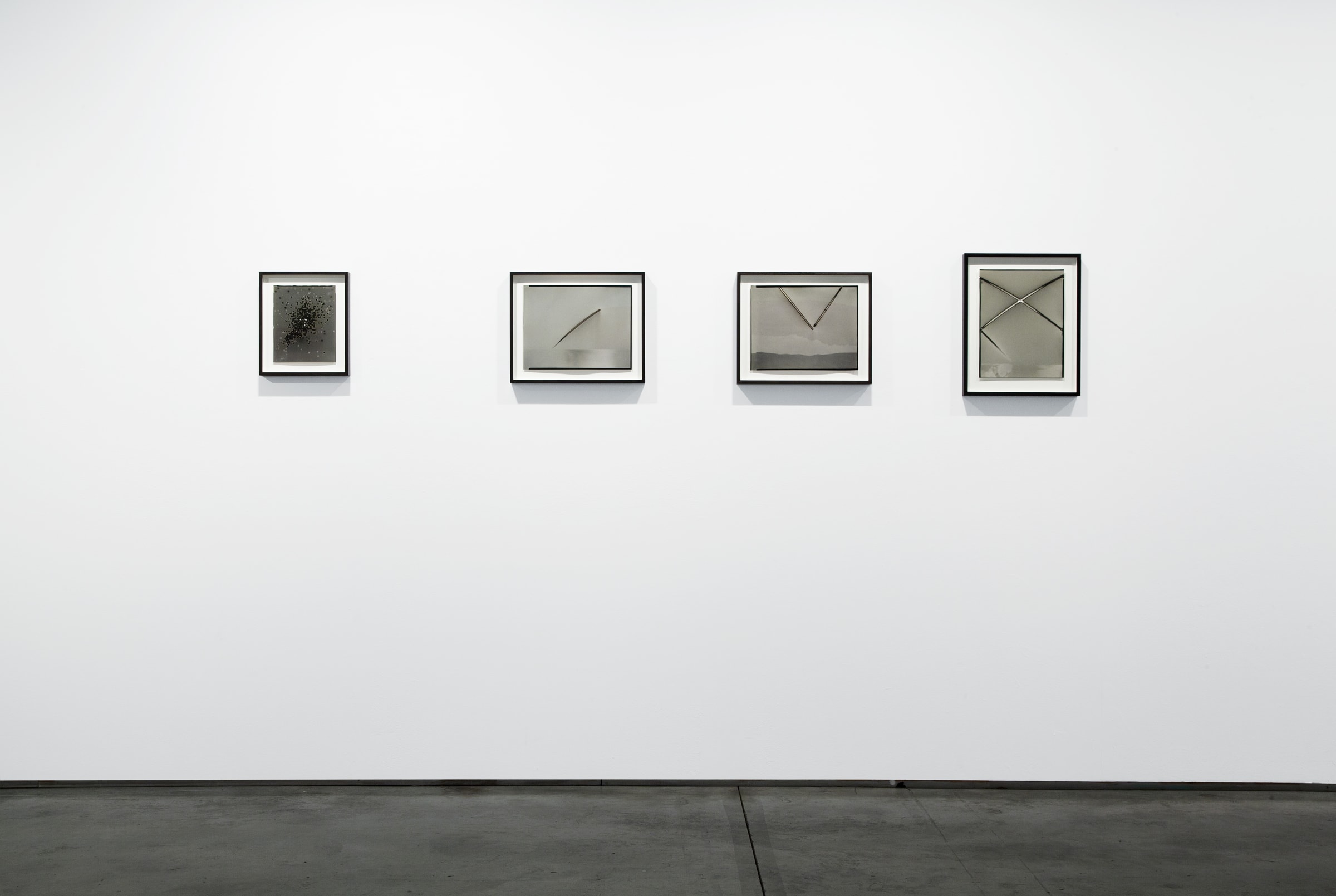
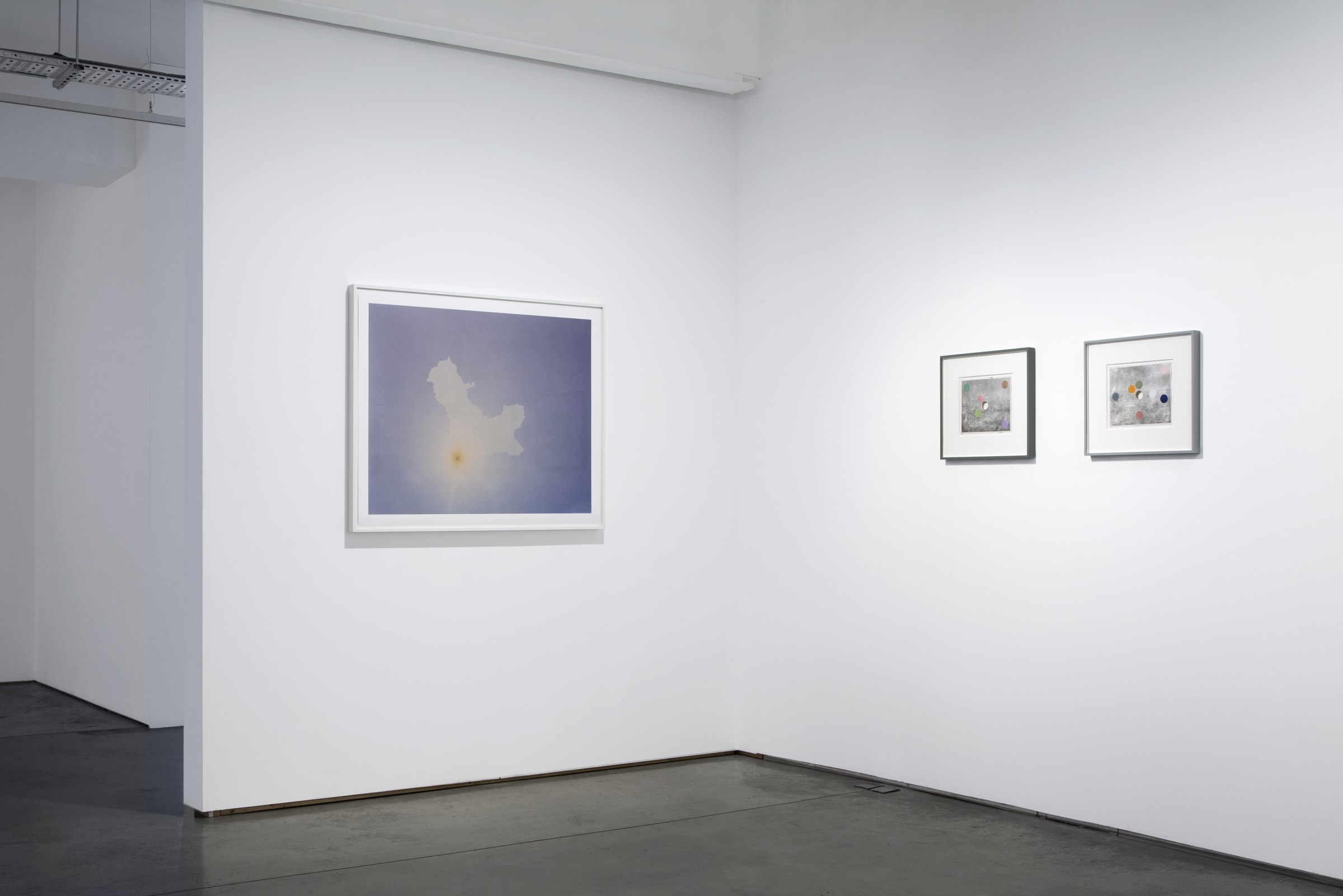
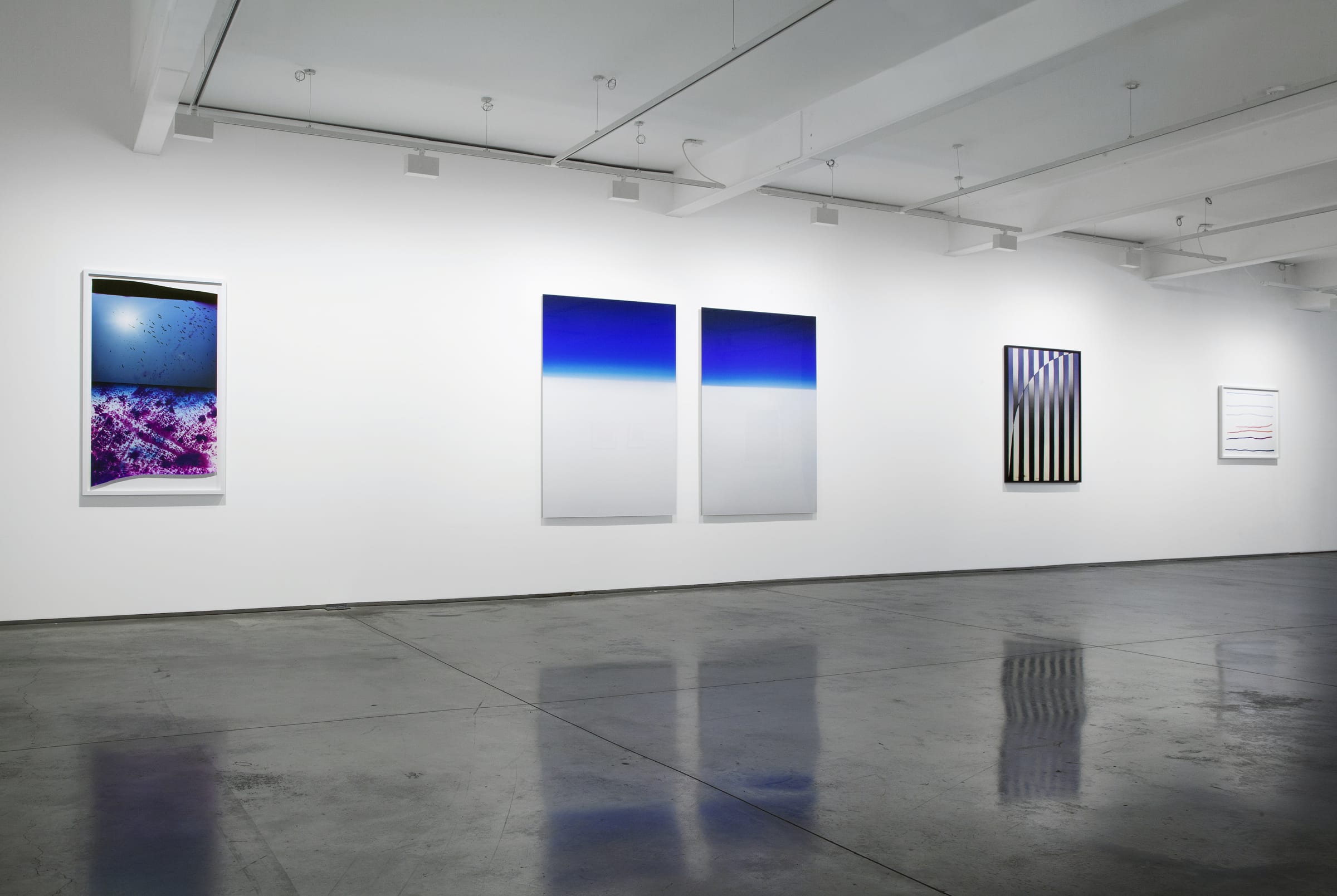
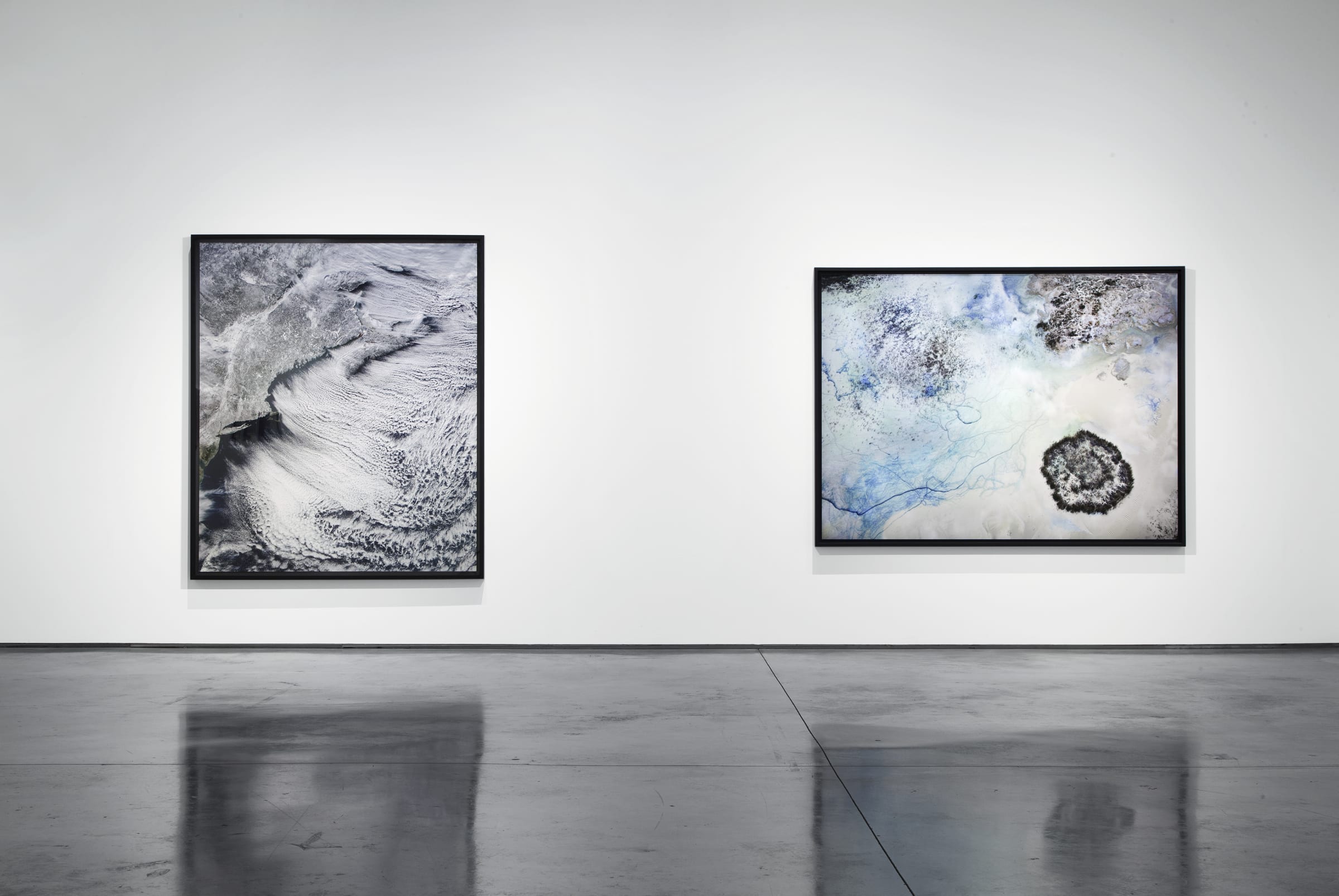
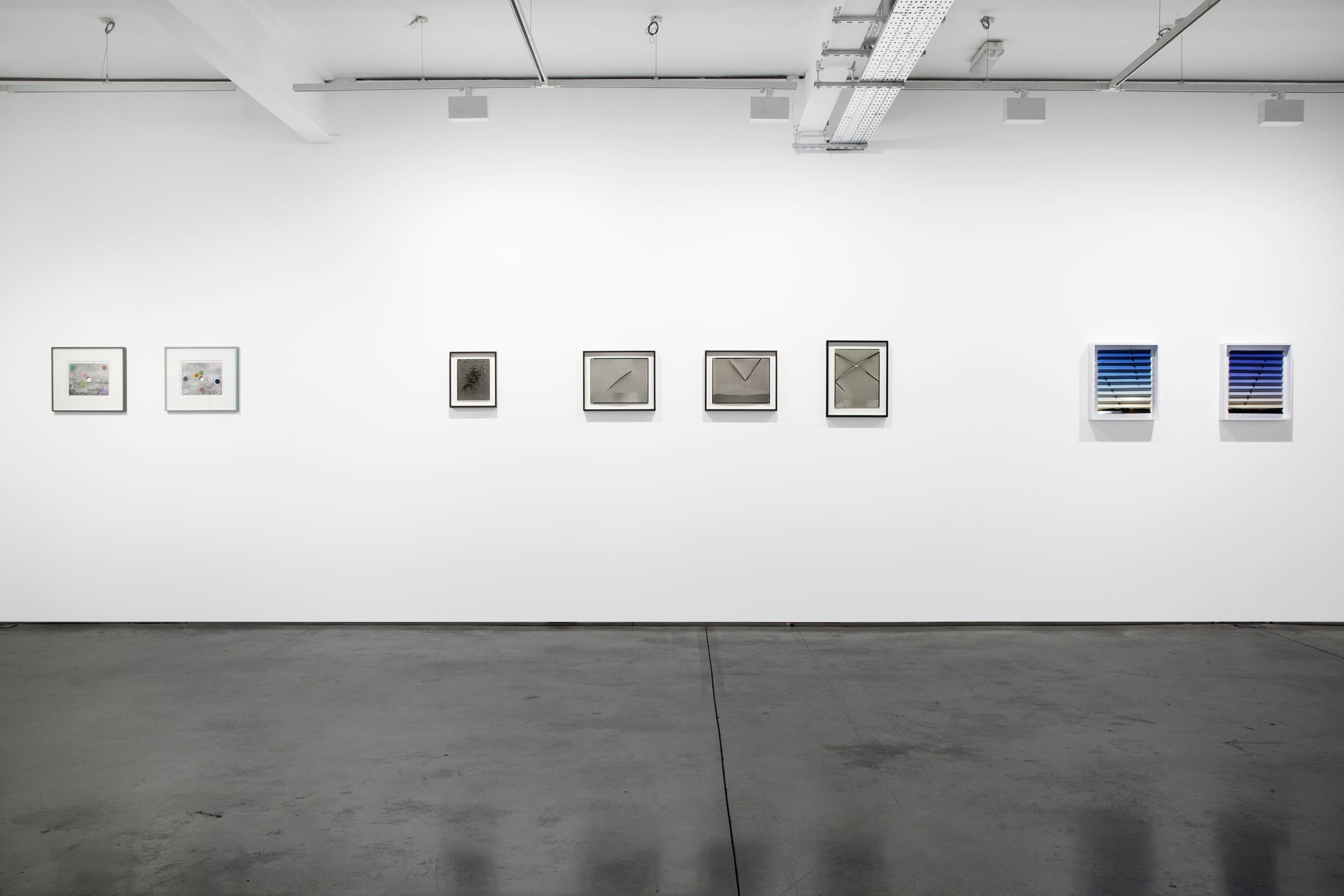
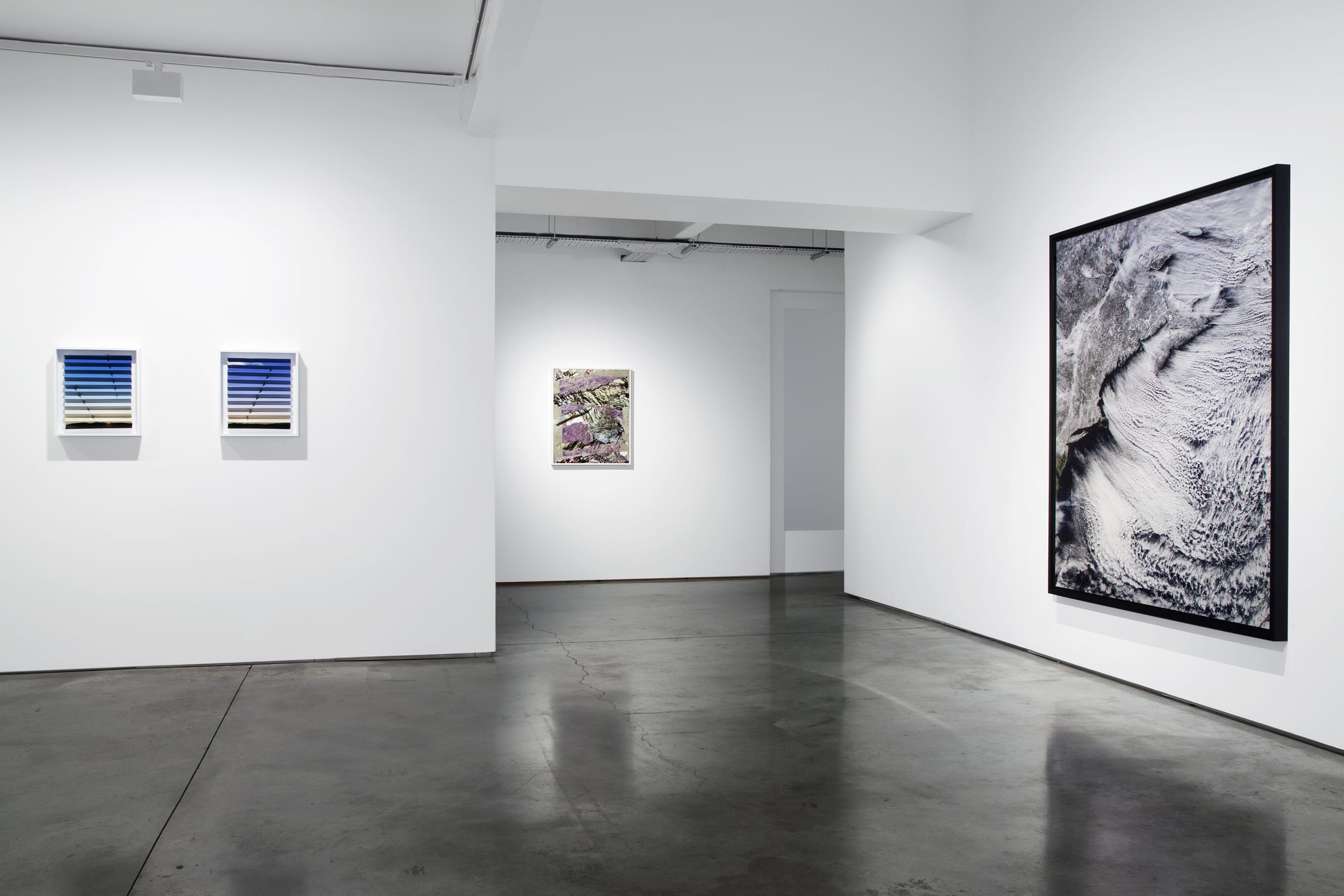
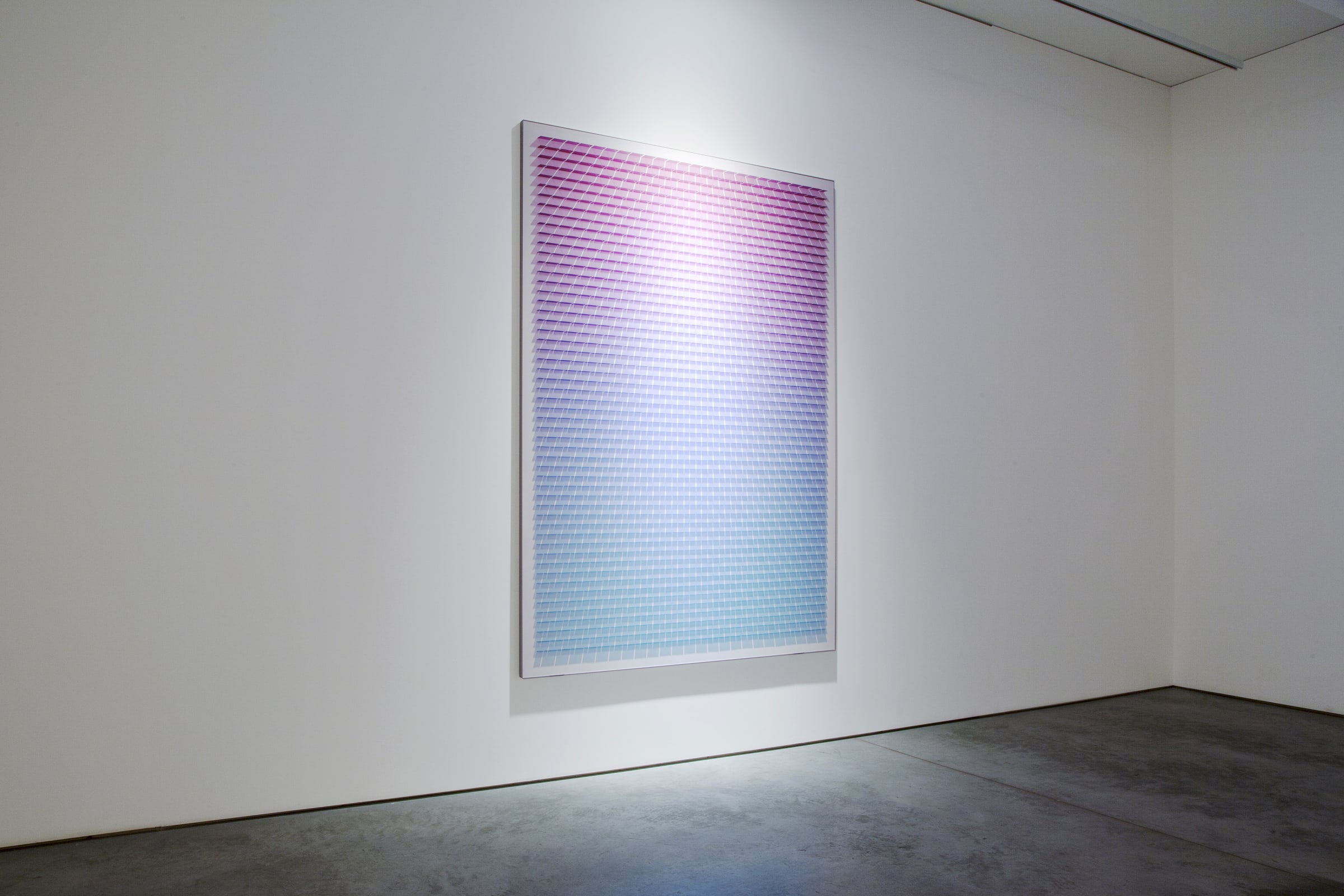
Out of Obscurity
Overview
Out of Obscurity presents a speculative journey in response to the series of cloud studies produced in the 1920s by Alfred Stieglitz titled Equivalents. From the disorienting perspectives of aerial photography to physical manipulation of photography’s material properties, the exhibition draws together visions of the sky produced by a range of international artists.
Flowers Gallery is pleased to announce the first chapter of a two-part group exhibition focusing on abstraction within contemporary photography. Out of Obscurity presents a speculative journey in response to the series of cloud studies produced in the 1920s by Alfred Stieglitz titled Equivalents. From the disorienting perspectives of aerial photography to physical manipulation of photography’s material properties, the exhibition draws together visions of the sky produced by a range of international artists.
The horizon line, seen here as a subjective or symbolic point of contact between two distinct spaces, forms an initial seam running through the exhibition. On the Clouds by Boomoon, taken from a plane at high altitude, presents the dividing line between sky and cloud as though at eye-level, forming an ‘absolute horizon’, which Boomoon considers to lead to the realm of infinity. Also from an aerial viewpoint, the flattened frontal aspect and dizzying perspective of Edward Burtynsky’s Phosphor Tailings navigates a narrow path between form and content. What appears to be the sky mirrored in a lake below is revealed as the vivid hues of toxic algae blooms generated by phosphorous mining. The image functions, from Burtynsky’s viewpoint, as a reflecting pool of our times, seducing the eye to the surface and immersing the viewer in painterly details of line, shape and colour
A sensitivity to both surface and material can be seen in many of the exhibiting artists, manifesting in images that are interrupted, deconstructed and re-assembled through both digital and analogue processes. Alliance by Chloe Sells, which captures the atmospheric patterns of birds flocking to the flooded plains of the Okavango Delta in North-Western Botswana, is constructed from two images overlaid on an irregularly shaped photographic print, offsetting the chance effects produced by chemical manipulation in the darkroom with the organic decay and transience of nature. Chris McCaw directly harnesses the power of the sun’s rays to scorch traces onto light sensitive paper negatives. His Heliograph series explores the effects of multiple exposures of the sun’s path, conflating the indelible records of time and place, and forming an indexical relationship between the subject and its representation. Letha Wilson brings the image and the sensory effects of the rugged desert landscape together by subjecting her photographs to sculptural processes. Corrugating, splicing and shuttering the photographic prints, Wilson also pours concrete into their ridges and folds, blurring the lines between photography and sculpture, representation and abstraction. An intersection of horizontal and vertical planes is present in the evocative and minimal work Colour Filter for a Utopian Sky by Wang Ningde. Graduating between the cool sunrise tones of turquoise and pink, the original representation of the sunset is deconstructed and reconfigured in three dimensions as an abstracted and inverted photographic image.
John Maclean applies a reductive process in his series Outhinking the Rectangle. In the work Container Ships, Horizon and Sky, Maclean digitally removes all but the most minimal information to evoke the sensation of a sunset in a sequence of graduated lines. In the work of Julie Cockburn, sculptural or physical manipulation can be seen equally as a process of embellishment and erasure. In Happenstance, a blizzard-like atmosphere is achieved through scratching away the photographic emulsion from found photographs, and is further masked by protruding hand-embroidered spheres.
Seeking abstraction in the man-made urban environment, Randy West photographs the spaces between the New York skyline observed during his daily walks in the city. In New York Sky, buildings are thrown into sharp relief in the long shadows cast by the September evening light, causing the negative space to form an impression of inverse skyscrapers.
Shifting both perspective and magnitude, Michael Benson’s North Atlantic Clouds pictures cloud formations over the coastline of New York State, rendered from satellite data sent back to earth from space. Within this alien viewpoint of the landscape, Benson creates a counter image to the view Stieglitz captured almost a century before, extending the scope of the abstracted photograph through advancements in science and technology.
Out of Obscurity presents a speculative journey in response to the series of cloud studies produced in the 1920s by Alfred Stieglitz titled Equivalents. From the disorienting perspectives of aerial photography to physical manipulation of photography’s material properties, the exhibition draws together visions of the sky produced by a range of international artists.
Works





